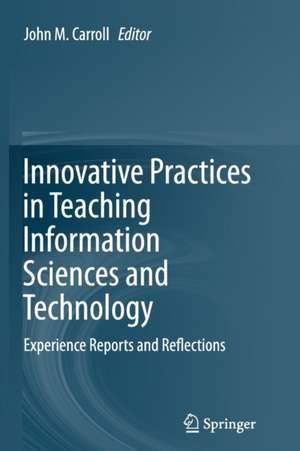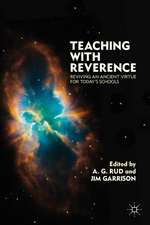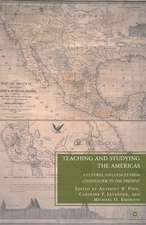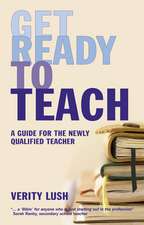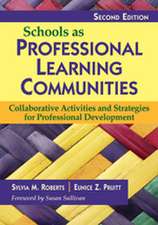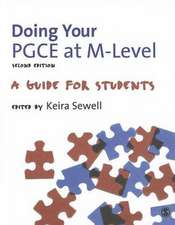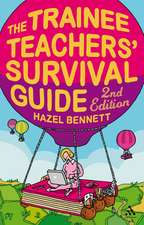Innovative Practices in Teaching Information Sciences and Technology: Experience Reports and Reflections
Editat de John M. Carrollen Limba Engleză Paperback – 27 aug 2016
This has been enabled by a better contemporary understanding of teaching and learning. Instructors now present situated projects and practices to their students, not just foundational principles. Lectures and structured practice are now often replaced by engaging and constructivist learning activities that leverage what students know about, think about and care about.
Teaching innovation has also been enabled by online learning in the classroom, beyond the classroom and beyond the campus. Learning online is perhaps not the panacea sometimes asserted but it is a disruptively rich and expanding set of tools and techniques that can facilitate engaging and constructivist learning activities. It is becoming the new normal in university teaching and learning.
The opportunity and the need for innovation in teaching and learning are together keenest in information technology itself: Computer and Information Science faculty and students are immersed in innovation. The subject matter of these disciplines changes from one year to the next; courses and curricula are in constant flux. And indeed each wave of disciplinary innovation is assimilated into technology tools and infrastructures for teaching new and emerging concepts and techniques.
Innovative Practices in Teaching Information Sciences and Technology: Experience Reports and Reflections describes a set of innovative teaching practices from the faculty of Information Sciences and Technology at Pennsylvania State University. Each chapter is a personal essay describing practices, implemented by one or two faculty that challenge assumptions and push beyond standard practice at the individual faculty and classroom level. These are innovations that instructors elsewhere may find directly accessible and adaptable.
Taken as a set, this book is a case study of teaching innovation as a part of faculty culture. Innovation is not optional in information technology; it inheres in both the disciplinary subject matter and in teaching. But it is an option for instructors to collectively embrace innovation as a faculty. The chapters in this book taken together, embody this option and provide a partial model to faculties for reflecting on and refining their own collective culture of teaching innovation.
| Toate formatele și edițiile | Preț | Express |
|---|---|---|
| Paperback (1) | 364.20 lei 38-45 zile | |
| Springer International Publishing – 27 aug 2016 | 364.20 lei 38-45 zile | |
| Hardback (2) | 377.55 lei 38-45 zile | |
| Springer International Publishing – 10 feb 2014 | 377.55 lei 38-45 zile | |
| Springer Nature Switzerland – 9 sep 2024 | 801.79 lei 38-45 zile |
Preț: 364.20 lei
Nou
Puncte Express: 546
Preț estimativ în valută:
69.70€ • 72.21$ • 58.17£
69.70€ • 72.21$ • 58.17£
Carte tipărită la comandă
Livrare economică 17-24 martie
Preluare comenzi: 021 569.72.76
Specificații
ISBN-13: 9783319345741
ISBN-10: 3319345745
Pagini: 246
Ilustrații: VIII, 238 p. 30 illus.
Dimensiuni: 155 x 235 x 13 mm
Greutate: 0.35 kg
Ediția:Softcover reprint of the original 1st ed. 2014
Editura: Springer International Publishing
Colecția Springer
Locul publicării:Cham, Switzerland
ISBN-10: 3319345745
Pagini: 246
Ilustrații: VIII, 238 p. 30 illus.
Dimensiuni: 155 x 235 x 13 mm
Greutate: 0.35 kg
Ediția:Softcover reprint of the original 1st ed. 2014
Editura: Springer International Publishing
Colecția Springer
Locul publicării:Cham, Switzerland
Cuprins
Introduction.- The Karate Kid Method of Problem Based Learning.- Hungry Wolves, Creepy Sheepies: The Gamification of the Programmer's Classroom.- Teaching and Learning in Technical IT Courses.- Towards an Egalitarian Pedagogy for the Millennial Generation: A Reflection.- Higher Education Classroom Community Game: Together We Are Smarter.- The Tinker Toy Challenge – Peeking Under the Cloak of Invisibility in Information System Design.- Learning by Design.- Teaching Structured Analytical Thinking with Data using Visual-analytic Tools.- The Analytic Decision Game.- Cyber Forensic War Room: An Immersion into IT Aspects of Public Policy.- Semester Projects on Human-Computer Interaction as Service and Outreach.- Enterprise Integration: An Experiential Learning Model.- Immersive Learning.- Leveraging Mobile Technology to Enhance both Competition and Cooperation in an Undergraduate.- Teaching Information Security with Virtual Laboratories.- Using Video to Establish Immediacy with Students in Distance Education Courses.- Reflections on Blended Learning.- Chronicles of the Partially Distributed Team Project: Learning to Teach Students to Collaborate in Global Teams.
Textul de pe ultima copertă
University teaching and learning has never been more innovative than it is now.
This has been enabled by a better contemporary understanding of teaching and learning. Instructors now present situated projects and practices to their students, not just foundational principles. Lectures and structured practice are now often replaced by engaging and constructivist learning activities that leverage what students know about, think about, and care about.
Teaching innovation has also been enabled by online learning in the classroom, beyond the classroom, and beyond the campus. Learning online is perhaps not the panacea sometimes asserted, but it is a disruptively rich and expanding set of tools and techniques that can facilitate engaging and constructivist learning activities. It is becoming the new normal in university teaching and learning.
The opportunity and the need for innovation in teaching and learning are together keenest in information technology itself: Computer and Information Science faculty and students are immersed in innovation. The subject matter of these disciplines changes from one year to the next; courses and curricula are in constant flux. And indeed, each wave of disciplinary innovation is assimilated into technology tools and infrastructures for teaching new and emerging concepts and techniques.
Innovative Practices in Teaching Information Sciences and Technology: Experience Reports and Reflections describes a set of innovative teaching practices from the faculty of Information Sciences and Technology at Pennsylvania State University. Each chapter is a personal essay describing practices, implemented by one or two faculty, that challenge assumptions, and push beyond standard practice at the individual faculty and classroom level. These are innovations that instructors elsewhere may find directly accessible and adaptable.
Taken as a set, this book is a case study of teaching innovation as a part of faculty culture. Innovation is not optional in information technology; it inheres in both the disciplinary subject matter and in teaching. But it is an option for instructors to collectively embrace innovation as a faculty. The chapters in this book, taken together, embody this option and provide a partial model to faculties for reflecting on and refining their own collective culture of teaching innovation.
This has been enabled by a better contemporary understanding of teaching and learning. Instructors now present situated projects and practices to their students, not just foundational principles. Lectures and structured practice are now often replaced by engaging and constructivist learning activities that leverage what students know about, think about, and care about.
Teaching innovation has also been enabled by online learning in the classroom, beyond the classroom, and beyond the campus. Learning online is perhaps not the panacea sometimes asserted, but it is a disruptively rich and expanding set of tools and techniques that can facilitate engaging and constructivist learning activities. It is becoming the new normal in university teaching and learning.
The opportunity and the need for innovation in teaching and learning are together keenest in information technology itself: Computer and Information Science faculty and students are immersed in innovation. The subject matter of these disciplines changes from one year to the next; courses and curricula are in constant flux. And indeed, each wave of disciplinary innovation is assimilated into technology tools and infrastructures for teaching new and emerging concepts and techniques.
Innovative Practices in Teaching Information Sciences and Technology: Experience Reports and Reflections describes a set of innovative teaching practices from the faculty of Information Sciences and Technology at Pennsylvania State University. Each chapter is a personal essay describing practices, implemented by one or two faculty, that challenge assumptions, and push beyond standard practice at the individual faculty and classroom level. These are innovations that instructors elsewhere may find directly accessible and adaptable.
Taken as a set, this book is a case study of teaching innovation as a part of faculty culture. Innovation is not optional in information technology; it inheres in both the disciplinary subject matter and in teaching. But it is an option for instructors to collectively embrace innovation as a faculty. The chapters in this book, taken together, embody this option and provide a partial model to faculties for reflecting on and refining their own collective culture of teaching innovation.
Caracteristici
Covers teaching innovation in computing from a personal initiative, based on practice and the experiences of instructors Focuses on innovation leveraging what students do know and think about to create a richer learning experience Uses 'experience reports' based on specific pedagogical challenges and goals to explore various teaching challenges Includes supplementary material: sn.pub/extras
Notă biografică
John M. Carroll is Distinguished Professor of Information Sciences and Technology at the Pennsylvania State University. His research is human-centered design of information technology, especially tools for collaborative and collective activity, and the transformative possibilities and risks entrained by new technology. Carroll serves on several advisory and editorial boards for journals, handbooks, and series. He is editor of the Synthesis Lectures on Human-Centered Informatics. Carroll received the Rigo Award and the CHI Lifetime Achievement Award from ACM, the Silver Core Award and Pioneer in HCI Award from IFIP, the Goldsmith Award from IEEE, an honorary doctorate in engineering from Universidad Carlos III de Madrid, and the Faculty Scholar Medal in Social and Behavioral Science from Penn State. He is a fellow of AAAS, ACM, IEEE, IFIP, the Human Factors and Ergonomics Society, the Psychonomics Society, the Society for Technical Communication, and the Association for Psychological Science.
